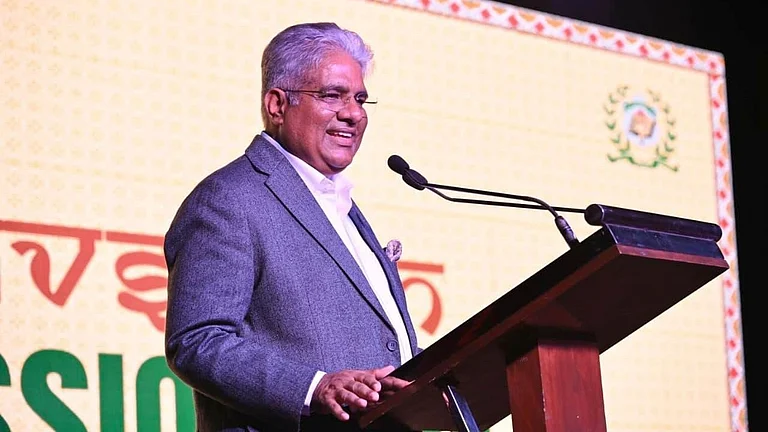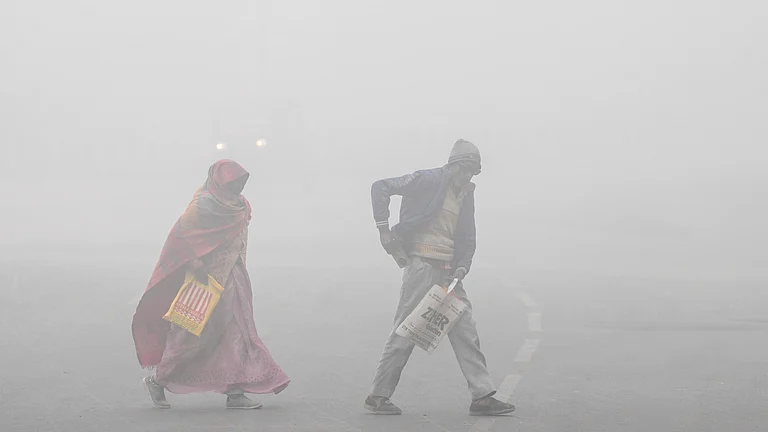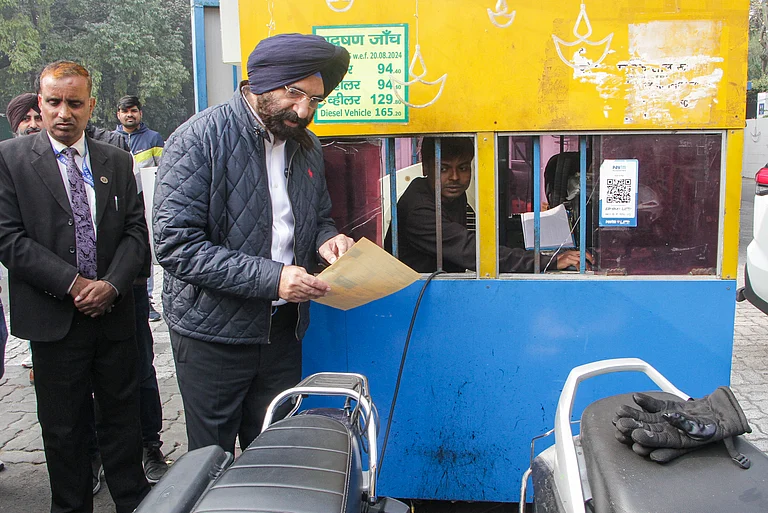As a thick layer of smog envelops Delhi, parents and schools are ramping up efforts to protect children from falling sick by issuing advice against the use of firecrackers and fossil fuel-powered transport, as well as calling for pollution-holidays.
Aprajita, president of the Parents' Association, said despite the implementation of the Graded Response Action Plan (GRAP), pollution continues to rise in the city.
"Due to increased pollution, many students face health issues such as skin and lung allergies, prompting parents to take measures like planting saplings and installing air purifiers at home," said Aprajita.
She said the government must designate at least five to six "pollution holidays" for students during November and December when pollution peaks.
Aprajita also warned against an increased screen time, which, she claimed, may lead to myopia.
Sudha Acharya, principal of ITL School, issued an advisory that outlines the adverse effects of poor air quality on students' mental and physical well-being, exacerbating conditions such as asthma and anxiety.
The advisory called for restricted outdoor activities, use of masks, sustainable commuting practices, and encouraged hydration and antioxidant-rich foods in the cafeteria. It also asked children to celebrate a "Green Diwali" that doesn't harm the environment.
Rajesh Hasija, principal of Indraprastha School, urged students to take an oath during morning assembly to avoid fireworks and encourage them to plant a sapling at home.
"We recycle water at our school for sprinkling on the ground and reduce dust and smoke. In addition, we run a club where students participate in annual sapling-planting initiatives and promote the use of public transport over personal vehicles," Hasija said.
The national capital has witnessed alarming levels of pollution in the past few days, with the air quality index (AQI) reaching 363, or 'very poor' on Wednesday.
A rise in PM10 levels, which comprise tiny particles capable of penetrating the lungs and affecting heart and lung health, continues to rise in the city making it difficult for the people to breathe.































